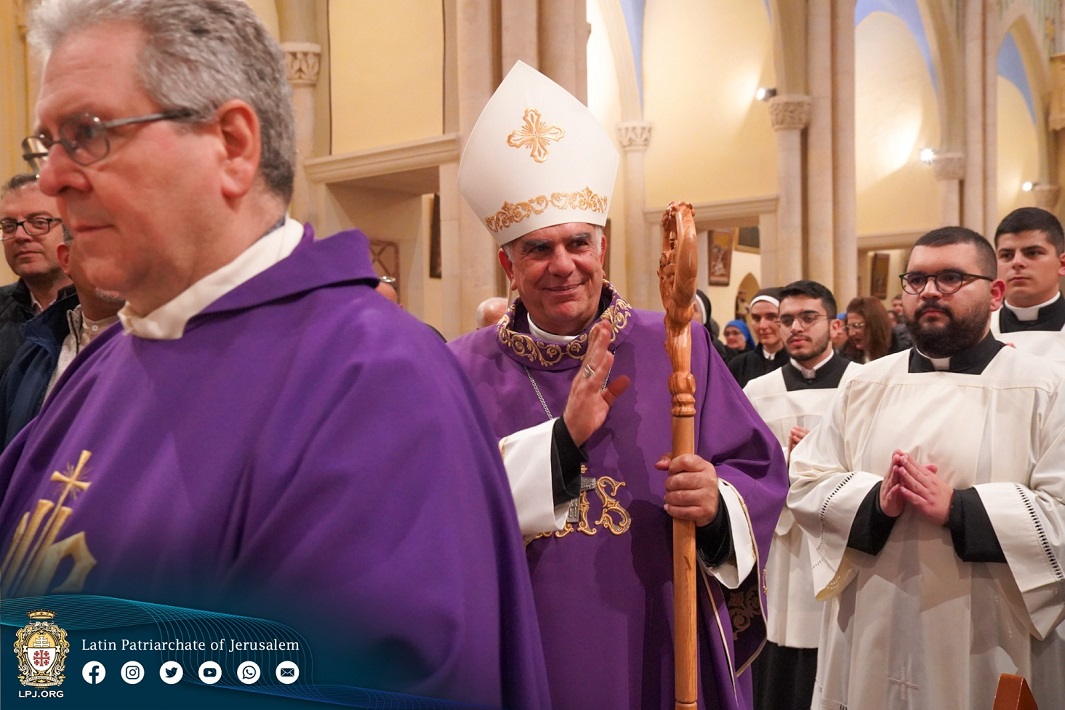By Paschal Norbert
DJIBOUTI, MARCH 7, 2024 (CISA)– Rt Rev Jamal Boulos Sleiman Daibes has been installed as the bishop of the Catholic Diocese of Djibouti.
In a solemn evening Episcopal Installation Mass at the Cathedral of Our Lady of the Good Shepherd in Djibouti on March 3, Bishop Jamal took possession of the only diocese in the country, thus officially succeeding Bishop Giorgio Bertin OFM who has served in the see since 2001.
Besides being the local ordinary of Djibouti, Bishop Jamal will also serve as the Apostolic Administrator of the Catholic Diocese of Mogadishu, Somalia.
Before his appointment on January 13, 2024, was the Auxiliary Bishop of Jerusalem, Palestine, and the Titular Bishop of Patara. He served in various places in the Latin Patriarchate of Jerusalem in Jordan and Palestine and various administrative, pastoral and academic positions, and most recently as an auxiliary bishop and Patriarchal Vicar in Jordan since 2021.
The new bishop of Djibouti was ordained a priest of Jerusalem in July 1988. After his priestly ordination, Bishop Jamal an alumnus of the Pontifical Gregorian University of Rome served as Vicar of Christ the King Parish in Amman and later became a professor and then rector in Beit Jala, the seminary where he obtained his bachelor’s degree.
Bishop Daibes has also served as head of the Department of Religious Studies at Bethlehem University and dean of the Faculty of Arts; parish priest of the Holy Family parish in Ramallah; director of the Schools of the Latin Patriarchate in Palestine and Patriarchal vicar in Jordan (2021-2022).
The Catholic Church has been present in Djibouti since 1885, with the arrival of the first French Capuchin missionaries. The number of Catholics, in the country, today is roughly between five and seven thousand.
Djibouti is a country located in the Horn of Africa. It is bordered by Eritrea in the north, Ethiopia in the west and south, and Somalia in the southeast. The other border is surrounded by the Red Sea and the Gulf of Aden to the east. Approximately 95% of the Djiboutian population is Sunni Muslim.
Although religious freedom is guaranteed in the constitution, the majority of inhabitants who practice Christianity in Djibouti are expatriates and other immigrants from various countries.

